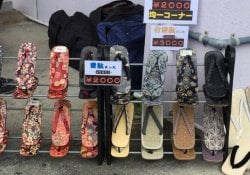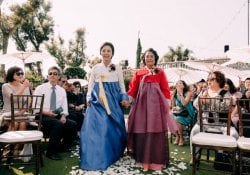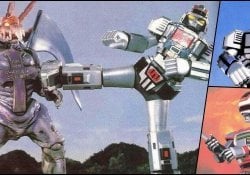In Korean, there are several ways to greet someone, depending on the situation and the degree of familiarity between people. In this article we are going to look at some greetings in Korean. Different ways to say Hi, Hello, Good morning, Good afternoon and Good night.
인사 (insa) is the most common word for “greetings” in Korean. There are variations such as 인사의 말 (insaui mal), 인사 말씀 (insa malsseum) and 인사구 (insagu) which may refer to presentations. Ready to learn Korean?
We also recommend reading:
Índice de Conteúdo
Are there customs when greeting each other in Korea?
Yes, there are some customs and etiquette that must be observed when greeting someone in Korea. Here are some things to consider:
- Handshake: Handshake is the most common way to greet someone in Korea, but it is mainly used in formal situations or with people who don't know each other very well. The handshake should be firm, but not overly tight, and should be done with your palms facing down.
- Smile: Smiling is an important way to show respect and kindness in any culture, and this is true in Korea as well. When greeting someone, it is important to smile and show a friendly expression.
- Respect for surname: In Korea, it is common to use surname when addressing someone, especially in formal situations. When greeting someone, it is important to use the person's last name and add the auxiliary verb 씨 (ssi) after it. For example, if the person's name is 이순신 (Lee Sunsin), you should address them as 이씨 (Lee ssi).
- Eye Contact: Maintain eye contact while greeting someone in Korea, as this shows respect and care for the person. However, it is important not to stare at the person as this could be interpreted as a threat or disrespect.
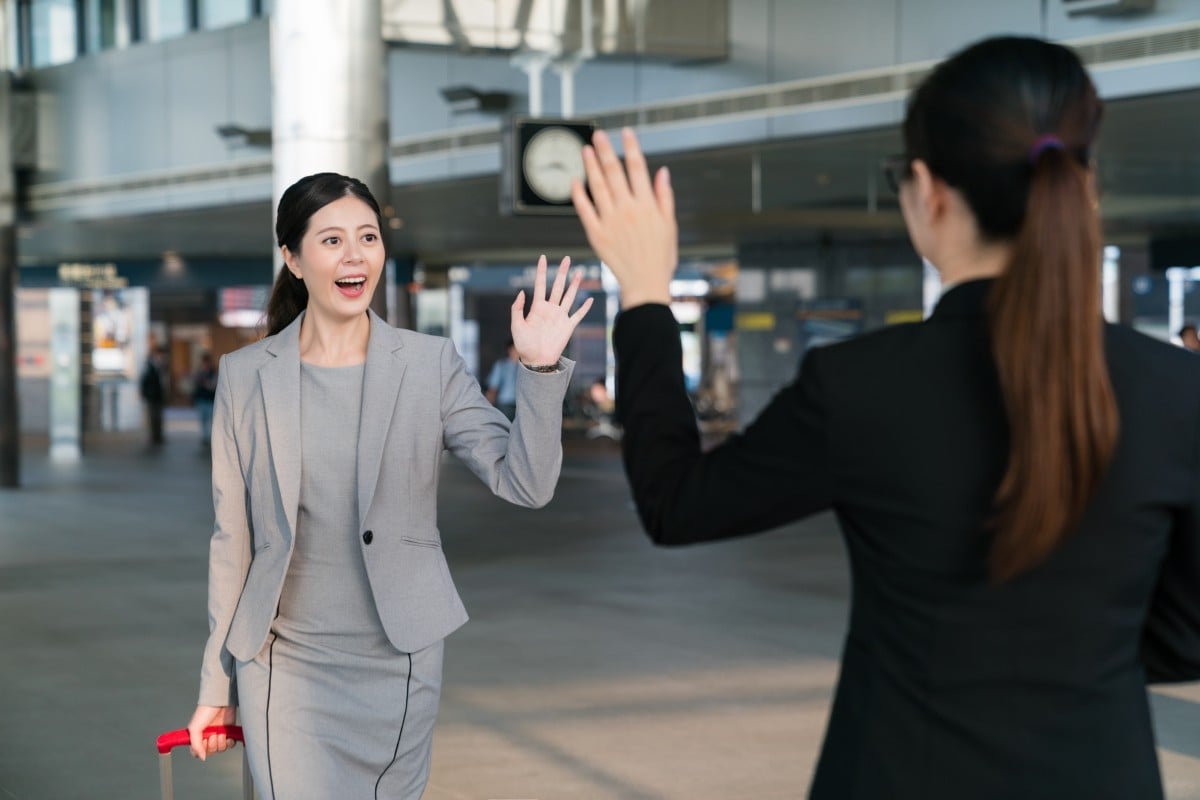
How to say “hi” and “hello” in Korean?
In Korean, the most common words to say "hi" or "Hello" are 안녕 하세요 (anyeonghaseyo) and 여 보세요 (Yeoboseyo). Both are used to greet someone in a polite and respectful way.
The word 안녕 하세요 (Annyeonghaseyo) is the most common way to say "Hi" or "Hello" in Korean and can be used in any situation, whether in a formal or informal environment. It is composed of the words 안녕 (Annyeong), which means "peace" or "longing", and 하세요 (Haseyo), which is an auxiliary verb that indicates an polite or respectful action.
The word 여보세요 (yeoboseyo) is also used to greet someone, but it is a bit more informal than 안녕하세요 (annyeonghaseyo). It is made up of the words 여보 (yeobo), which means “love” or “darling,” and 세요 (seyo), which is another auxiliary verb that indicates a polite or respectful action. 여보세요 (yeoboseyo) is most commonly used between close friends or family.
Read also: What Does Oppa Mean in Korean?
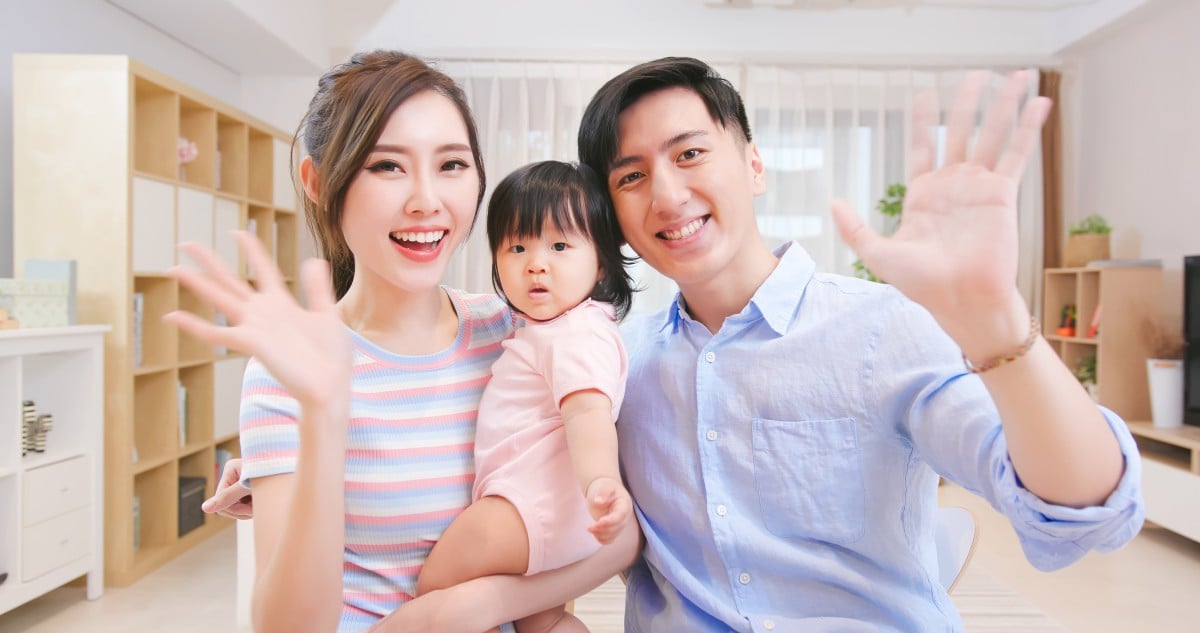
How to say “Good morning, Good afternoon and Good evening” in Korean?
Good morning in Korean is usually 좋은 아침입니다 (joheun achimimnida) . It is composed of the words 좋은 (joheun), which means “good”, and 아침 (achim), which means “morning”. The informal version used among friends and family is 좋은 아침 (joheun achim) .
Good afternoon in Korean is 좋은 저녁입니다 (joheun jeonyeokimnida) , and its informal form is 좋은 저녁 (joheun jeonyeok) . It is composed of the words 좋은 (joheun), which means “good”, and 저녁 (jeonyeok), which means “late”.
Good night, we use 좋은 밤입니다 (joheun bamimnida) for formal and 좋은 밤 (joheun bam) for informal. Like the previous ones, it literally refers to good night.
The article is still halfway through, but we recommend also reading:
Other ways to say Hi in Korean
Here are some other words and expressions that can be used to greet someone in Korean:
- 안녕히 계세요 (Annyeonghi Gyeseyo) - "Goodbye" or "See you" (formal)
- 안녕 (Annyeong) - "Hi" or "Hello" (informal)
- 잘 지내세요 (Jal Jinaeseyo) - "How are you?" or "How are you?" (formal)
- 잘 지내? (Jal Jinae?) - "How are you?" or "How are you?" (informal)
- 안녕 하세요 (Annyeonghaseyo) - Hello
- 어떻게 지내세요 (Eotteoke Jinaeseyo) - How are you?
- 지금 어디 계시나요 (jigeum eodi gyesinayo) – Where are you now?
- 집 에 갈까 요 (Jibe Galggayo) - Go home?
- 오늘 뭐 할 거예요 (oneul mwo hal geoyeyo) – What are you going to do today?
- 오랜만 이에요 (oraenmanieyo) - It's been a long time!
- 언제 오셨어요 (eonje osyeosseoyo) – When did you arrive?
- 감기 조심하세요 (gamgi josimhas eyo) – Beware of a cold
- 좋은 꿈 꾸세요 (joheun kkum kkuseyo) – Have sweet dreams
- 새벽 잘 지내셨나요 (saebyeok jal jinaesyeotnayo) – Did you have a good night?
안녕 하십니까 (Anyeonghasimnikka) - This is a formal way of greeting someone in Korean and is mainly used in formal situations or with older people. It is composed of the words 안녕 (annyeong), which means “peace” or “longing”, and 하십니까 (hasimnikka), which is an auxiliary verb that indicates a polite or respectful action.
어떠세요 (eotteoseyo) - This is an informal way of asking "how are you?" or "How are you?" in Korean. It is composed of the words 어떠 (eotteo), which means "as" or "how" (Seyo), which is an auxiliary verb that indicates an educated or respectful action.
안녕 해 (Annyeonghe) - This is an informal way of greeting someone in Korean and is mostly used between friends or family. It is composed of the words 안녕 (annyeong), which means “peace” or “saudade”, and 해 (he), which is an auxiliary verb that indicates an informal or relaxed action.
I hope these greetings and greetings in Korean will help your vocabulary. If you liked it, share it and leave your comments.

